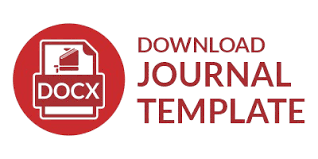Peningkatan Kapasitas SDM Kementerian Pendidikan Timor Leste Melalui Pelatihan Learning Management System Berbasis Moodle di Universitas Dinamika
DOI:
https://doi.org/10.62710/v590g963Keywords:
Digital literacy;, E-learning; , Learning, LMS training;, MoodleAbstract
Moodle-based Learning Management System (LMS) training is one of the solutions to enhance digital literacy among educational staff, especially in government institutions engaged in the field of education. This activity is carried out by Universitas Dinamika in collaboration with DPD PPGI East Java and the Ministry of Education of Timor Leste, as a form of community service aimed at enhancing human resource capacity in the era of digital transformation. The main objective of this activity is to equip the staff of the Timor Leste Ministry of Education with technical knowledge and skills in using the Moodle LMS, ranging from user account management, lesson material preparation, to the use of evaluation features and interactive forums. The implementation method of the activity includes a 6-hour hands-on face-to-face training, supported by digital training modules and the internal LMS system of Universitas Dinamika, MyBrilian. Evaluation was conducted using a qualitative approach through observation and participant satisfaction questionnaires. The results show a change in attitude towards the use of technology in supporting their work. This activity has an impact on increasing participants' digital readiness, strengthening institutional capacity in e-learning implementation, and opening up opportunities for sustainable international collaboration. Universitas Dinamika, through this activity, plays a role in strengthening digital literacy in the regional area and makes a tangible contribution in the field of educational technology.
References
Alshammary, F. M., & Alhalafawy, W. S. (2023). Digital Platforms and the Improvement of Learning Outcomes : Evidence Extracted from Meta-Analysis. Sustainability, 15. https://doi.org/https://doi.org/10.3390/ su15021305
Anggraeni, D. M., Prahani, B. K., Suyatno, & Jatmiko, B. (2024). Learning Innovation in the 3T Area: The Effectiveness of Moodle-Based Blended Learning on Critical Thinking Skills. The Asian Conference on Education. https://papers.iafor.org/wp-content/uploads/papers/ace2024/ACE2024_86999.pdf
David, M., & Miriam, M. (2022). Digital Teaching Competence in Teacher Training as an Element to Attain SDG 4 of the 2030 Agenda. Sustainability, 14(18), 11387–11387. https://doi.org/https://doi.org/10.3390/su141811387
Gamage, S. H. P. W., Ayres, J. R., & Behrend, M. B. (2022). A systematic review on trends in using Moodle for teaching and learning. International Journal of STEM Education, 9(1). https://doi.org/10.1186/s40594-021-00323-x
Goh, T., & Yang, B. (2021). The role of e-engagement and ow on the continuance with a learning management system in a blended learning environment. International Journal of Educational Technology in Higher Education in Higher Education, 18(49). https://doi.org/https://doi.org/10.1186/s41239-021-00285-8
Hertz, B., Grainger, H., Daniella, C., Hansen, T., Laurillard, D., Murray, M., Fernandes, L., Gilleran, A., Rojas, D., & Danguole, R. (2022). A pedagogical model for effective online teacher professional development-findings from the Teacher Academy initiative of the European Commission. European Journal of Education, 57(1), 142–159. https://doi.org/10.1111/ejed.12486
Lavidas, K., Papadakis, S., Filippidi, A., Karachristos, C., Misirli, A., Tzavara, A., Komis, V., & Karacapilidis, N. (2023). Predicting the Behavioral Intention of Greek University Faculty Members to Use Moodle. Sustainability, 15(7), 6290–6290. https://doi.org/https://doi.org/10.3390/su15076290
Martín, N., María, S., Vivas, D., Leire, U., & Salgado, N. (2023). Educate to transform : An innovative experience for faculty training. Education and Information Technologies, 28(2), 1613–1635. https://doi.org/10.1007/s10639-022-11160-y
Mhlanga, D. (2023). The Fundamental Strategies that will Drive Higher Educational Sector Towards Digital Transformation in Industry 4 . 0. Emerging Science Journal, 7, 125–134. https://doi.org/http://dx.doi.org/10.28991/ESJ-2023-SIED2-010
Olivares, E. L., Martínez Pagola, S., Austria, L. M., Martínez Tapia, K., & Mosqueda, M. G. (2023). Learning analytics in Moodle LMS: An integral perspective. Journal of Engineering Research. https://doi.org/10.22533/at.ed.3173302314095
Oliveira, E. A., Barba, P. De, & Corrin, L. (2021). Enabling adaptive, personalised and context-aware interaction in a smart learning environment : Piloting the iCollab system. Australasian Journal of Educational Technology, 37(2), 1–23. https://doi.org/10.14742/AJET.6792
Santana-Mendes, H. da S., & Santos, T. C. dos. (2022). O Moodle como plataforma de aprendizagem e-learning: flexível, adaptável e personalizável / Moodle as a learning platform e-learning: flexible, adaptable and customizable. Brazilian Journal of Development, 8(4), 29715–29726. https://doi.org/10.34117/bjdv8n4-455
Satriani, E., Wahyuni, S., & Muklis, M. (2023). Pelatihan Desain Konten Pembelajaran yang Kreatif dan Inovatif berbasis Aplikasi Moodle. Jurnal Pengabdian UNDIKMA, 4(1), 74. https://doi.org/10.33394/jpu.v4i1.6866
Truong, T., & Quoc Bao Diep. (2023). Technological Spotlights of Digital Transformation in Tertiary Education. IEEE Access, 11, 40954–40966. https://doi.org/10.1109/ACCESS.2023.3270340
Yunos, N., Muslim, N., Hussain, A., Hasim, N. A., Nazri, N. S., & Hamsan, M. H. (2024). Best Practice of Moodle Implementation for E-Learning: A Perspective of Public University Lecturers. Journal of Ecohumanism, 3(5), 261–268. https://doi.org/10.62754/joe.v3i5.3899
Downloads
Published
Issue
Section
License
Copyright (c) 2025 Vivine Nurcahyawati, Erwin Sutomo (Author)

This work is licensed under a Creative Commons Attribution-NonCommercial-ShareAlike 4.0 International License.






